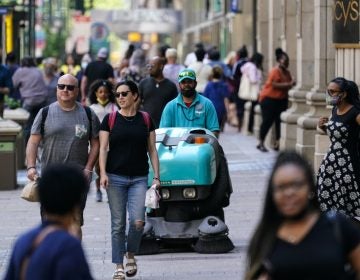Germantown film screening honors woman ‘who should be an inspiration to young people but isn’t’
-
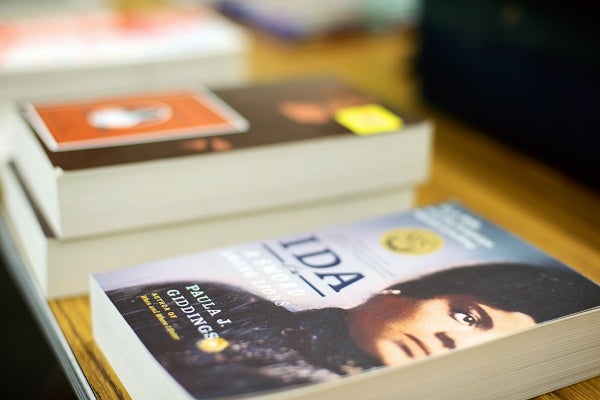
<p>Books about Ida B. Wells' life and legacy were offered for sale after the event. (Bas Slabbers/for NewsWorks)</p>
-
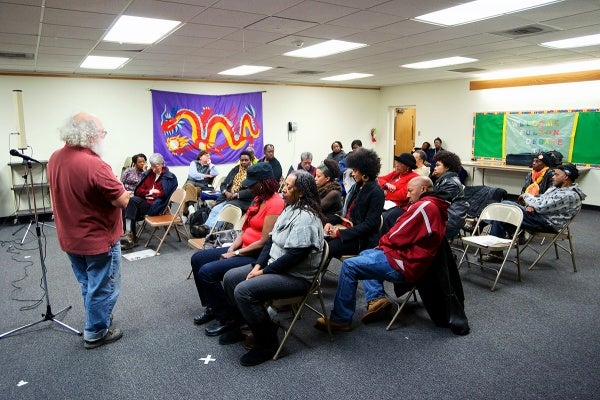
<p>The event featured a discussion about Wells and other topics. (Bas Slabbers/for NewsWorks)</p>
-
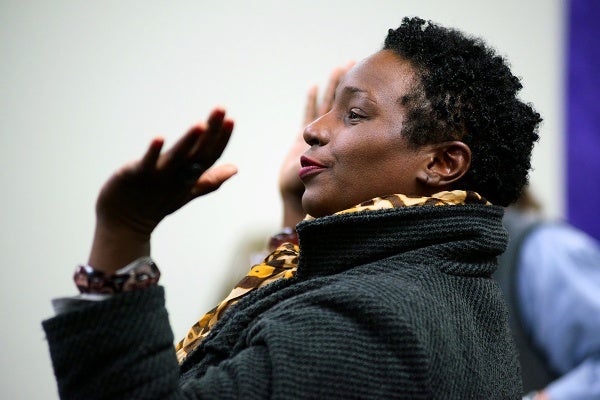
<p>Said Noreen Mallory after she saw the film, "At that time, it was extremely courageous for her to take that kind of stance. I'm just so high because that's what I have decided to do in my life." (Bas Slabbers/for NewsWorks)</p>
-
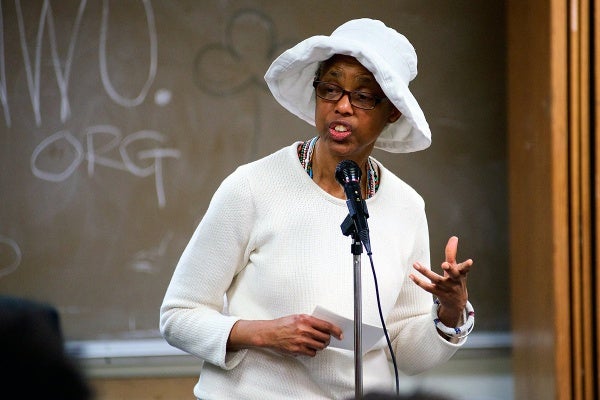
<p>Novelist and freelance journalist Constance Garcia-Barrio offered her thoughts on a contemporary form of lynching blacks through the justice and education systems in America. (Bas Slabbers/for NewsWorks)</p>
-

<p>Novelist and freelance journalist Constance Garcia-Barrio offered her thoughts on a contemporary form of lynching blacks through the justice and education systems in America. (Bas Slabbers/for NewsWorks)</p>
-

<p>Screening of the film Ida B. Wells: A Passion for Justice. (Bas Slabbers/for NewsWorks)</p>
-

<p>Screening of the film Ida B. Wells: A Passion for Justice. (Bas Slabbers/for NewsWorks)</p>
-
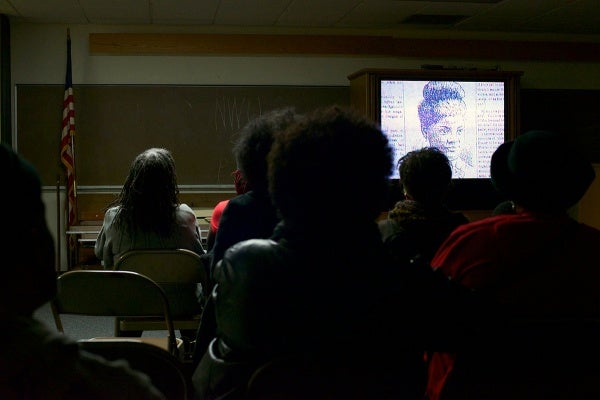
<p>The 53-minute "Ida B. Wells: A Passion for Justice" film was produced and directed by William Greaves and released in 1989. (Bas Slabbers/for NewsWorks)</p>
-
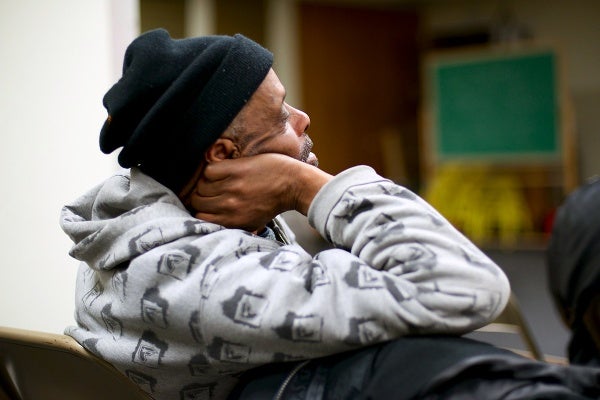
<p>About 30 people gathered to watch the film, which was held as part of a three-week "Hidden History: Ida B. Wells, Lynching and Trayvon Martin" series. (Bas Slabbers/for NewsWorks)</p>
-
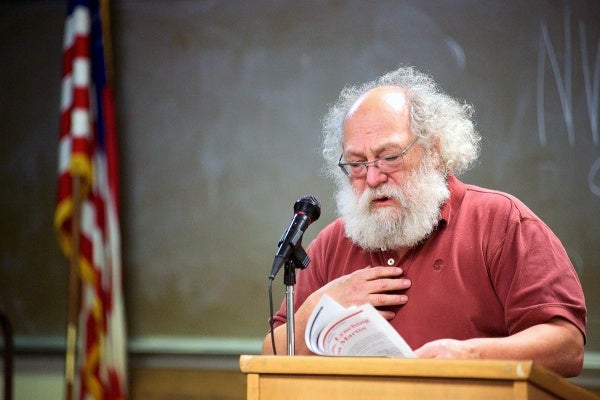
<p>Larry Robin, director of Moonstone Arts Center, said that the conversation about Wells is important because she and others like her are rarely mentioned in history books. (Bas Slabbers/for NewsWorks)</p>
-
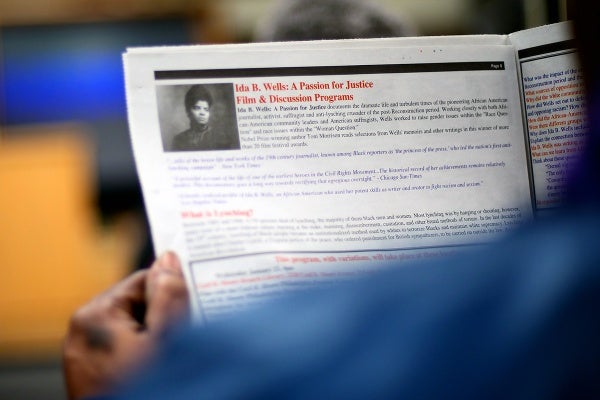
<p>At the start of the event, programs with details about Wells' life were handed out. (Bas Slabbers/for NewsWorks)</p>
-
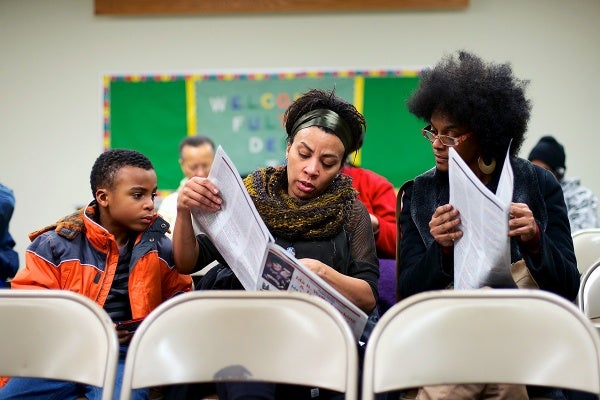
<p>To celebrate the 150th birthday of writer, suffragette and activist Ida B. Wells, Moonstone Arts Center hosted a film screening at a Germantown library branch on Tuesday night. (Bas Slabbers/for NewsWorks)</p>
To celebrate the 150th birthday of Ida B. Wells — a journalist, writer, educator, activist and suffragette who gave voice to the lynching of black people and fought for social justice for African Americans — Moonstone Arts Center hosted a film screening at the Joseph E. Coleman Northwest Regional Library on Tuesday night.
About 25 people gathered in the library’s meeting room to watch the 53-minute film “Ida B. Wells: A Passion for Justice,” which was shared as part of a three-week “Hidden History: Ida B. Wells, Lynching and Trayvon Martin” series.
Filmography
The film, produced and directed by William Greaves and released in 1989, documented Wells’ life in the post-Civil War era when many African Americans were in search of new lives outside of the institution of slavery.
Wells, an editor and owner of several black newspapers, was published in several publications in America and abroad, founded the Negro Fellowship League, formed the Alpha Suffrage Club and was one of the founders of the National Association for the Advancement of Colored People (NAACP).
In the film, Nobel Prize-winning author Toni Morrison read selections from Wells’ writings while other writers and historians talked about her courage and continued effort to fight for the social justice for blacks in America.
Hidden history explored
Larry Robin, director of Moonstone Arts Center, said that the conversation about Wells is important because she is among the figures rarely mentioned in history books even though their lives were critical parts of America’s past.
“This was an incredibly brave woman who should be an inspiration to young people today, but she isn’t. She isn’t talked about,” Robin said. “What we also tried to do is tie that piece of history to something contemporary because things don’t change. Perhaps the reason they don’t change is that histories are suppressed or hidden.”
Wells’ earlier work centered on writing editorials about the South’s lynch mobs and savage torture used as a justification to attack black men and women between 1882 and 1968.
Novelist and freelance journalist Constance Garcia-Barrio likened America’s current justice and educational systems to contemporary forms of lynching.
“In a Drexel University study, it said that dark-skinned women in the Philadelphia court system routinely received harsher sentences than woman who are more fair,” Garcia-Barrio said. “Those sentences rob the women of rights and life possibilities. Our men in general receive harsher sentences. … and what those [felony] convictions do to limit their lives, that too is a kind of lynching.
“It’s less obvious, but the lack of wholesome foods in many neighborhoods is a kind of lynching,” Garcia-Barrio continued. “It imposes a kind of limitation. In some cases, school children do not have enough food to eat, wholesome food or food of any kind. … [C]onsider how that limits what they can do in school, the progress they can make and how it reverberates throughout their lives”
Reactions from the film
Noreen Mallory, journalist and entrepreneur, said she saw the flyer for the discussion and decided to go because she loves to study history. Though familiar with Wells, Mallory admitted that she did not know the extent of Wells’ experience in the press.
“At that time, it was extremely courageous for her to take that kind of stance,” she said. “I’m just so high because that’s what I have decided to do in my life.”
For more information about upcoming events, including several on Wednesday night, call (215) 735-9600.
WHYY is your source for fact-based, in-depth journalism and information. As a nonprofit organization, we rely on financial support from readers like you. Please give today.




